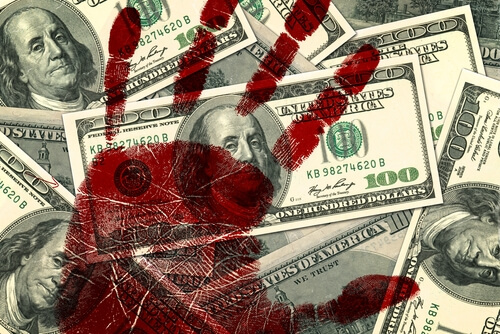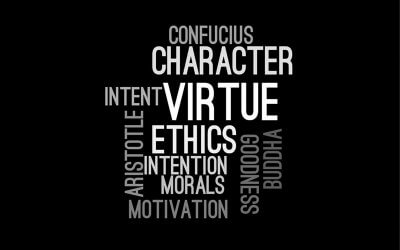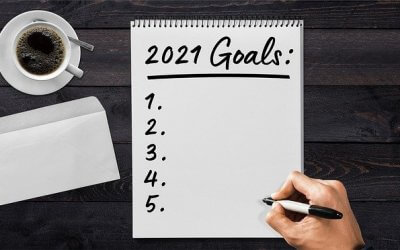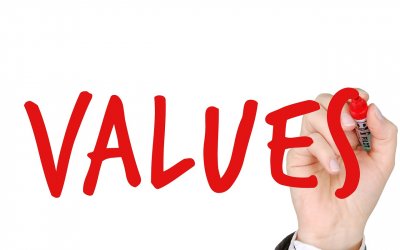Discover how understanding the limitations of averages and embracing probabilistic thinking can improve decision-making and risk management in business.

Profit and Revenue are Lousy Core Values
As I mentioned last week, I am down with COVID and tired, so spending more time reading rather than working. I read Bill Browder’s Freezing Order this weekend, and I highly recommend it. However, at the end of the book, Browder says that oligarchs, autocrats, and leaders like Mohammed bin Salman are enabled by the professional service providers that help them. As I reflected on this and Browder’s allegations in his book against John Moscow et al., I had to think, why do these lawyers, bankers, accountants, etc., work for these characters? They know the abuses that their clients commit but are willing to overlook them because their clients pay enormous sums. We saw what Paul Manafort earned helping Russia in Ukraine and Jared Kushner’s recent investment from MBS, so money is the driver. However, money is a lousy core value.
Now don’t get me wrong, I would like to earn a lot of money, but I am not willing to sacrifice my core values. If money, or some proxy like revenue or profit, is your core value, you can have no other core values. Money as the core value overrides any additional core values you may claim and justifies any behavior because the behavior is driving money.
Issues with Money as a Value
So if money is the core value, then the firm attracts those who believe in money as a core value; however, that can cause other issues. For example:
- Loyalty to the firm. If money is the core value, there is no loyalty to the firm as they will move for more money as that is their value. Also, they will do things that can hurt the firm if it brings in more revenue. Here are some examples: Arthur Andersen and Enron, Perdue Pharma and the opioid crises, Boeing 737 Max, and McKinsey’s recent scandals.
- Loyalty to clients. Again there can be no objection to doing something that harms a client if it makes the firm more money as that is the driver. Bill Browder’s book gave a classic example of this with the behavior of John Moscow and Baker & Hostetler. If my research backs up Browder’s claims, I would never recommend Baker & Hostetler to anyone I know and any attorney there is a damaged product in my book.
- Loyalty to colleagues. There is none because making money is all-important, so why sacrifice money to help a colleague?
Now, the scandals above made many a lot of money. If money is your driver, then great. But your legacy is what you did for others, and that is how you are remembered once you’re dead. I would not want people to say, “He was responsible for the death and damage of many.” If that is how you are remembered, many will revile you in time, and your family may start to distance themselves from you. I ran into a high school friend several years ago and mentioned I had met her father after his release from prison. She was so embarrassed she walked away and never spoke to me again. So sad.
As I reflect on all the people I have met in my career, I would say that lawyers are the most unhappy and wish to be doing something else. Now that is not all lawyers, just more lawyers than others. I think that is because many law firms have no culture and will act for any paying client. If your client is against your values, you have sacrificed them for money, which leads to unhappiness because, as we have all heard, “Money doesn’t buy happiness.”
Many of the people involved in the above are on the redemption trail, e.g., Andy Fastow from Enron. But, when you look at him speaking and think of how many people’s lives he knowingly damaged, I have to ask, does going on the speaking circuit redeem him? To me, No.
Culture is Critical.
As discussed earlier, Boeing sacrificed decades of industry safety leadership for profit. The Tory party, today, is sacrificing all its value for power. Once you go down that road, your reputation takes a very long time to return and often more than a lifetime. So it is critical to define your core values. I recommend that you determine your core values and define the expected corporate behaviors that your values prescribe. Then stick to them above all else. As Jim Collins said, “You would sacrifice profit rather than your core values.” Also, when hiring, look at where a candidate has come from, and that firm reflects your core values. It is easier to teach a skill than new values.
As you reflect on decisions, always think of your “elder” self looking back at the end of life and ask, is that how I want to be remembered?
(c) Copyright 2022, Marc A. Borrelli
Recent Posts
The “Flaw of Averages” Causes Havoc for Businesses
What is Your Strategy, In a Sentence?
If you are banking on the vaccine returning us all to “normal” quite quickly, in the famous words of Dr. Akande, “Hope is not a strategy.” Your organization should be preparing a well-defined strategy for 2021 and beyond. Once you have this strategy, the ultimate question: can you clearly articulate it in one sentence? Distilling your strategy into a single sentence is a powerful tool, both for your legacy and your team effectiveness. Not sure where to start? I offer a plug-in formula to set up your strategy sentence.
Character Matters
“It’s easier to hold to your principles 100% of the time than it is to hold to them 98% of the time.” — Clayton Christiansen. I have often written about the importance of a company’s Core Values. That’s because no matter what words you may have chosen as values, your organization’s Core Values are on display in how leadership and employees actually behave. As I’ve said before, how you have acted in the last twelve months will define your career for the next decade. Your character, and your company’s character, matters.
New Year’s Resolutions, Once More Unto the Breach
The holidays have been even quieter than normal, which has given me plenty of time to reflect on my New Year’s resolutions. Looking at 2021, I decided to use a completely new approach to lay out my goals. The result of my new approach? A highly-detailed, accountable, actually achievable plan for the next year (I think). Wondering what this process looks like?
To Vaccinate or Not to Vaccinate, that is the Question
What do your employees, peers, and leadership team think of the COVID-19 vaccine? Will you require the vaccine, or will you let employees make individual decisions? As a leader, you need to steer the discussion about vaccines in your organization with your Core Values in mind. No matter what strategy your organization takes, the most important factor is going to be how you communicate your decision.
3 Ways You Could be Undermining Your Core Values
Can you answer “Why does your organization exist? What are your core values?” Great. Now, would your latest entry-level employee give a similar answer? How about someone who has been at your company for a year? Your core values give your organization a guiding mission. Many organizations pay this idea lip service, but their true commitment to their core values was tested this year. As we close out 2020, there’s no better time to examine how your organization is approaching your core values.
Are You Prepared for 2021 With Enough Cash?
Companies don’t go bankrupt because they lose money; rather, they run out of cash. Where are we, heading into 2021? First, you can expect your cash to get tighter as we weather the current economic slowdown. Then, with a vaccine on the horizon, you will need to be positioned for growth. If you don’t have the cash you need, have you looked at how you can generate the cash internally? More on how to improve your cash conversion cycle…
Tony Hsieh, a Corporate Culture Icon, RIP
In his work as Zappos CEO and elsewhere, Tony Hsieh believed, and proved, that culture is the most important thing in an organization. According to Hsieh, if you get the culture right, the rest will take of itself. How did Zappos do it? You can take a look at everything from the company’s interview questions, to “The Offer” to leave a position as a new hire. Hsieh believed that a company’s brand is just a reflection of the culture, and his legacy is felt across so many industries.
CEO, Try Thy Hiring System
How does your company hire? I’ve seen the good, the bad, and the surprisingly ugly hiring processes in my career. From the HR email mix-ups to the interviewer watching the World Series while I responded to his questions, I’ve learned that you can tell a lot about an organization simply by examining the hiring experience. Are you chasing away the kind of people you need at your company?
What is Leadership?
What is it, exactly, that great leaders do? There are plenty of overused adages about “leadership” in business. It’s worth examining the tropes around leadership, plus the traits of the leaders who actually leave a mark. Great leaders are forged through adversity, and they leave a legacy. What does that look like in your organization?










